Climate summaries
-
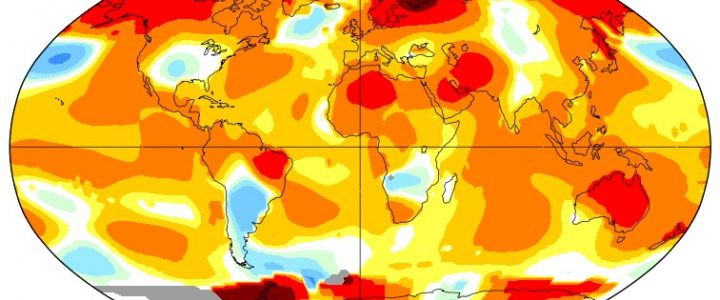
NASA released their global climate summary for May on Monday. It showed that by their calculation, May set a new record for warmth this year. NOAA will release their numbers later this week, which may be somewhat different from NASA’s due to differences in calculation due to different data sets. This record warmth makes it…
-

NOAA released their latest summary for May, spring (March-May) and year to date for the US today. You can see the summary at https://www.ncdc.noaa.gov/sotc/summary-info/national/201605. The summary shows that for May, the country as a whole was fairly close to the long-term average, although some regions were colder or warmer than average, particularly the Pacific Northwest.…
-
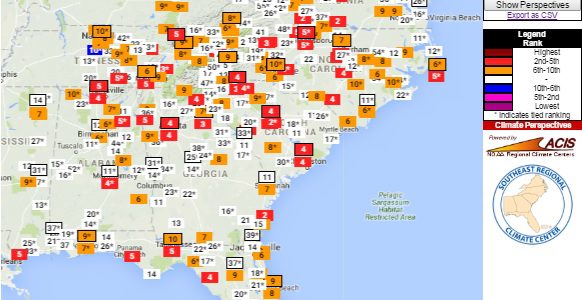
Spring has ended and the preliminary statistics show that for many areas in the Southeast, temperatures were much above normal, placing them in the top ten warmest on record. A number of stations were also in the top ten driest on record, particularly in the areas that are now experiencing drought. A few coastal stations…
-
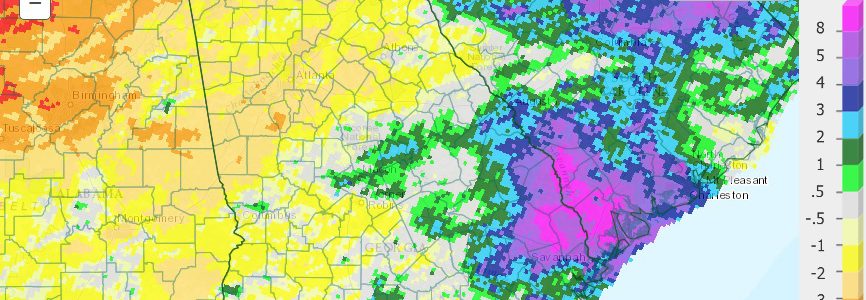
While record-setting rain fell in Savannah, most of Georgia suffered from a lack of rainfall in May. The result: drought expanded across the state, and severe drought was introduced into the northwest corner of the state by the end of the month. Temperatures at most locations were near normal in May. In Atlanta, the monthly…
-
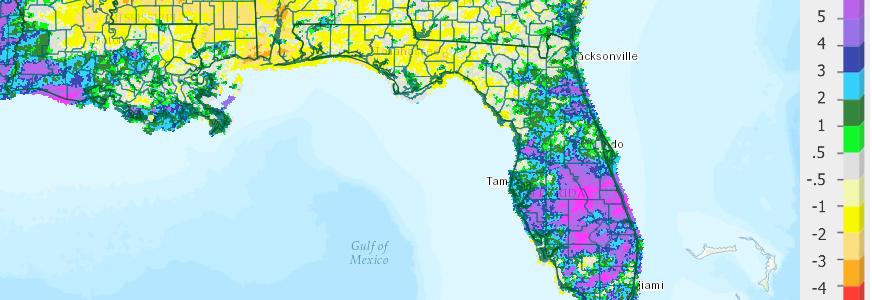
The latest climate summary for Florida for May 2016 is now available at https://climatecenter.fsu.edu/products-services/summaries/climate-summary-for-florida-may-2016.
Posted in: Climate summaries -
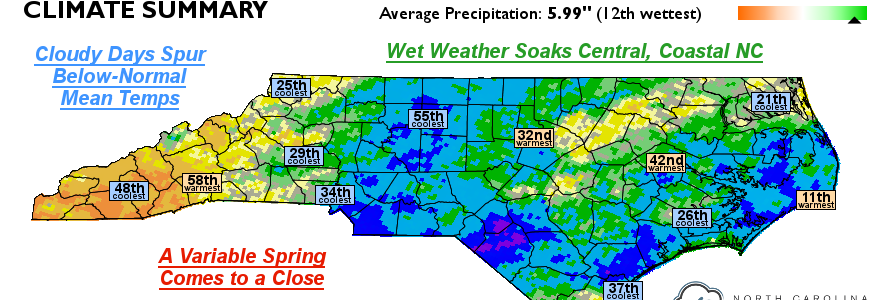
The State Climate Office of North Carolina published their summary of May climate this morning. You can read it at https://climate.ncsu.edu/climateblog?id=192&h=5666e5c1.
Posted in: Climate summaries -
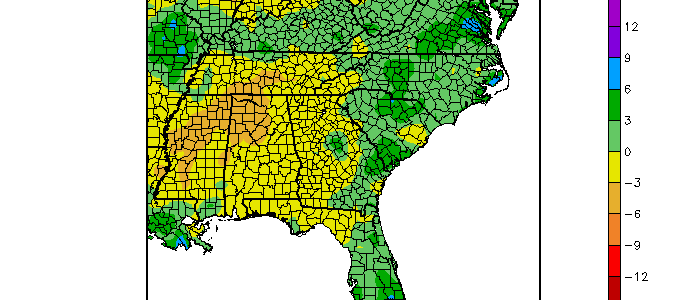
It’s almost the end of the month, so here is a first glance at the climate summary for May. Overall, most of the Southeast was below normal in temperature except for scattered areas in northern and coastal Georgia and some of the Florida peninsula. The eastern part of the Southeast was wet, although Alabama and…
Posted in: Climate summaries